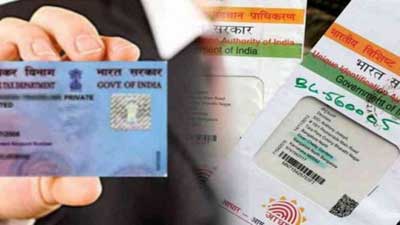Limited Liability Partnership

Limited Liability Partnership (LLP) in India governed under Limited Liability Partnership Act 2008, LLP is a corporate business that enables professional expertise and entrepreneurial initiative to combine and operate in flexible, innovative and efficient manner, as a hybrid of companies & partnerships providing benefits of limited liability while allowing its members the flexibility for organizing their internal structure as a partnership.
LLP’s are administered by the Registrar of Companies. Liability of partners is limited except where an Act is carried out by the LLP with intent to defraud creditors or any other person or for any fraudulent purpose A limited liability partnership is created through the state. Each state has its own set of rules and regulations that one must follow to form an LLP.
Advantages
LIMITED LIABILITY
The biggest benefits of forming an LLP are the limited legal liability and the flexible management roles. Unlike general partnerships, an LLP does not expose its partners to unlimited legal liability. In other words, if someone sues the LLP, the partners will not be indefinitely liable for that amount. Their liability will be limited to the amount that they contributed to the LLP for its formation.
FLEXIBLE ROLES
An LLP has extremely flexible management roles for the partners. The roles are defined in the LLP agreement that the partners draft themselves. Under the structure, each partner has the right to manage the LLP and have the right to choose how much management that they want. Thus, partners can have a very active role or even act as a silent in the LLP.
PERPETUAL SUCCESSION
An incorporated company has Continued Existence. Continued Existence means the company shall continue to exist even if the member dies or ceases, etc. Changes within the management does not bring any affect onto the identity of the company, the Company will remain the same with same privileges, immunities, estates and possessions. The Company shall continue to exist till its wound up in accordance with the provisions of the relevant law.
EASE OF FORMATION
State laws provide a clear structured process for forming LLPs. Thus, they are relatively easy to form. Generally, it requires the partners to fill out a registration form and file it with the local secretary of state. Nonetheless, the registration may require the partners to put in writing their roles, responsibilities, financial contributions, and debts distributions.
PASS-THROUGH TAX
Another big benefit of LLPs is that it has pass-through tax such that it avoids double taxation. LLP partners will only pay their own personal income taxes, while the LLP will not be taxed as a business entity.
Minimum Requirements
- Minimum 2 partners.
- Minimum 2 designated partners and at least one of them should be resident of India.
Get Expert Assistance
Company Registration
Documents Required For Registration
IDENTITY AND ADDRESS PROOF
Aadhar Card, Aadhar number is now a necessity for applying for any registration in India. Also, income tax return can only be filed if the person has linked his PAN card with Aadhar number.
Address proof will be required for all directors and shareholders of the company to be incorporated. For Indian nationals, PAN is mandatory. For foreign nationals, apostilled or notarised copy of passport must be mandatorily submitted. Residence proof documents like bank statement or electricity bill should not be more than 2 months old.
All documents submitted must be valid

Registered Office Proof
- Register office of all companies must be in India .If it is a Rented Property, Rent agreement and NOC from a landlord. If it is a Self-owned Property, Electricity bill or any other address proof.
- Documents submitted must be valid and not more than 2 month old.

Process
DIGITAL SIGNATURE CERTIFICATE (DSC)
Before Initiating The Process Of Registration, You Must Apply For The Digital Signature Of The Designated Partners Of The Proposed LLP. This Is Because All The Documents For LLP Are Filed Online And Are Required To Be Digitally Signed.
DIRECTOR IDENTIFICATION NUMBER (DIN)
You Have To Apply For The DIN Of All The Designated Partners Or Those Intending To Be Designated Partner Of The Proposed LLP. Earlier Partners Had To Apply For DPIN (Designated Partner Identification). Now Instead Of DPIN, Every Partner Who Will Be Appointed As A Designated Partner Has To Apply For DIN. The Application For Allotment Of DIN Has To Be Made In Form DIR- 3.
RESERVATION OF NAME
Form 1 Is Filed For The Reservation Of Name Of Proposed LLP. But Before Quoting The Name In The Form, It Is Recommended That You Use The Free Name Search Facility On MCA Portal. This Will Help You In Choosing Names Not Similar To Already Existing Names. You Need To Provide Six Names In The Order Of Preference In Form 1.
The Registrar Will Approve The Name Only If The Name Is Not Undesirable In The Opinion Of The Central Government And Does Not Resemble Any Existing Partnership Firm Or An LLP Or A Body Corporate Or A Trademark.
INCORPORATION OF LLP
- Form 2 Is The Application Form For The Incorporation Of The LLP. You Must Keep In Mind Following Points While Filing Form 2.
- All The Details In The Form Must Be Filled Correctly Like – Total Number Of Partners And Designated Partners, Amount Of Partner’s Contribution, Etc.
- You Have To Pay The Prescribed Registration Fee Based On The Contribution Of Partners In The Proposed LLP.
- The Form Must Be Digitally Signed By A Person Named In The Incorporation Document As A Designated Partner Having DIN. Also, It Has To Be Digitally Signed By An Advocate/Company Secretary/Chartered Accountant/Cost Accountant In Practice.
- On The Submission Of The Form, If The Registrar Is Satisfied, They Will Register The Proposed LLP.
- It Takes 15-20 Days For The Registration Of LLP Subject To Government Processing Time And Submission Of Necessary Documents.
FILE LIMITED LIABILITY PARTNERSHIP AGREEMENT
- LLP Agreement Governs The Mutual Rights And Duties Amongst The Partners And Also Between The LLP And Its Partners.
- LLP Agreement Must Be Filed In Form 3 Online On MCA Portal.
- Form 3 For LLP Agreement Has To Be Filed Within 30 Days Of The Date Of Incorporation.
- The LLP Agreement Has To Be Printed On Stamp Paper.
FREQUENTLY ASKED QUESTIONS
There is any change in Partner and DP (admission, resignation, cessation, death, expulsion) should be filed e- form 4 within 30 days of change with fees. And also Supplementary LLP Agreement to be filed e- form 3 with ROC within 30 days with fees given the alteration in mutual rights and duties of partners and Form 4 shall include a statement signed by the incoming partner that he consents to become a partner.
An LLP shall be under obligation to maintain annual accounts reflecting true and fair view of its state of affairs. The Statement of Account & Solvency in Form-8, essentially signed by the designated partners, is to be filed within 30days from the six months from the closure of the respective financial year i.e. by 30th October. If there is any delay filing of Form 8 then the penalty would be Rs. 100/- after the above specified period.
- Every LLP in India, whose annual turnover exceeds the magnitude of Rs. 40Lakhs or the total contribution of its partners gets above the limit of Rs. 25Lakhs, is mandatorily need to get its accounts audited every financial year, strictly in accordance with the rules and provisions provided in the LLP Rules of 2009.
- Provided also that where the partners of such LLP do not decide for audit of the accounts of the LLP, such LLP shall include in the Statement of Account and Solvency a statement by the partners to the effect that the partners acknowledge their responsibilities for complying with the requirements of the Act and the Rules with respect to preparation of books of account and a certificate in the form specified in Form 8.
Every LLP would be required to file Annual Return with ROC. A duly authenticated Annual Return in e- Form-11, is to be filed with the Registrar, together with the prescribed fee, within a period of 60 days from the closure of every financial year.
Minimum two persons or partners are required to form a LLP and can have a maximum of any number of Partners.
The Designated partners must be a natural person & have attained 18 years of age. Foreign nationals, Foreign companies & LLP can incorporate a LLP in India subject to at least one designated partner is resident in India.
For the purpose of taxation, LLPs are treated like Partnership Firms. The Minimum Alternate Tax and DDT are not applied to LLPs in India. A private limited or public limited company, is subject to DDT @ 15% (plus Surcharge and Education Cess). The taxes applicable to an LLP in India, are the following:
- Income Tax: 30%. In case, when the income of the LLP exceeds INR One Crore in any financial year, then Surcharge @ 10% will be applied.
- o Education Cess: 3%.
The recent FDI norms and policies of the Government of India, especially those which were announced in November 2015, allow NRIs and Foreign Nationals/Investors for making FDI up to 100% in Indian LLPs through Automatic Route into some specified economic sectors. Some provisions have also been made effective for easy, fast, and smooth set-up and management of LLPs by NRIs and Foreign Investors, particularly when the annual sales turnover is less than INR 40 Lac, or when the contributed capital is less than INR 25 Lac.
